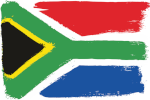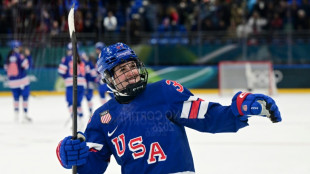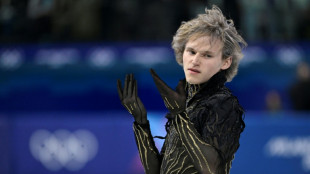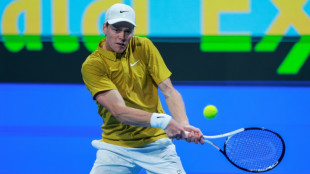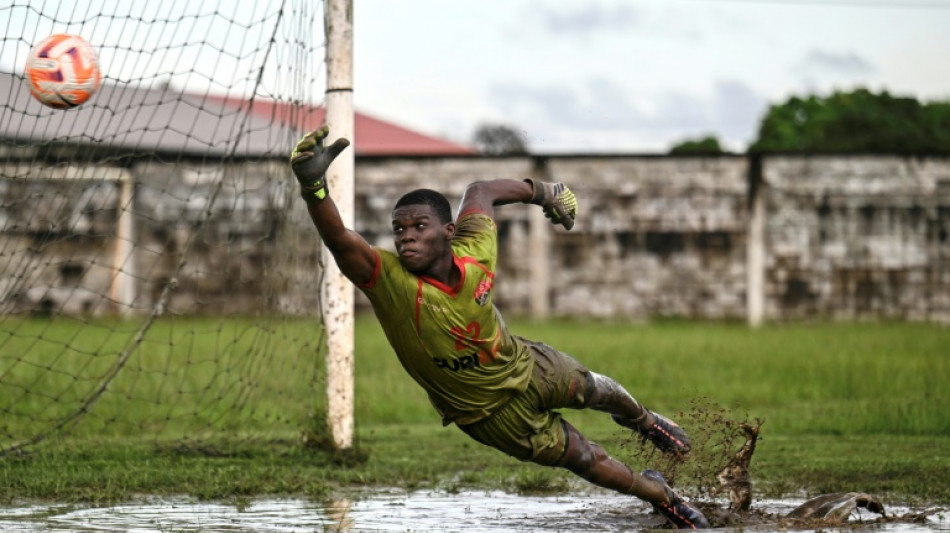

Payback time: how Dutch players could power Suriname to the World Cup
For years the small South American country of Suriname, a former Dutch colony, has been instrumental in producing some of the Netherlands' best footballers, from Frank Rijkaard and Ruud Gullit to Clarence Seedorf.
Now, nearly 40 years after Gullit inspired the Dutch to victory in the 1988 European Championships, their only major trophy, the boot is on the other foot.
Suriname is banking on Dutch players of Surinamese origin to help it achieve its wildest dream: booking a spot in the FIFA World Cup finals for the first time when it comes to North America in June next year.
"It's a dream of the nation and we hope that we can fulfil that dream," the president of the Suriname football federation Soerin Mathoera, told AFP in a recent interview in the Surinamese capital Paramaribo.
The tropical country of 600,000 people situated on the northeast coast of South America, ranked 137th in the world by FIFA, looked on with pride as its children's children helped revive the fortunes of the struggling "Oranje" in the late 1980s.
After failing to qualify for the 1982 and 1986 World Cups, a fabled trio of Surinamese-origin -- Rijkaard, Gullit and Aron Winter -- formed the nucleus of a new Dutch dream team.
It was not all plain sailing for players of color in the overwhelmingly white Dutch teams of the day.
Gullit complained of receiving racial abuse.
But the Surinamese influence endured.
In the 1990s, the likes of Edgar Davids helped the Netherlands reach the semi-final of the 1998 World Cup.
Current Dutch captain Virgil van Dijk, who has been a standout centre-back for English champions Liverpool, was born in the Dutch city of Breda to a Dutch father and Surinamese mother.
- 'Much easier' path to qualifiers -
Now the time has come for Suriname football to have its own moment in the sun.
In pursuit of its World Cup dream authorities in the Caribbean nation six years ago broke with a longtime taboo by allowing players from the Surinamese diaspora join the national team.
The floodgates opened.
Six years on, only three of the 26 players in the Surinamese squad were born in the country.
The rest moved from Europe or Asia to play for their ancestral homeland, seen as having its best chance yet of reaching the World Cup at next year's expanded tournament in the United States, Canada and Mexico of 48 teams (up from 32 previously).
Despite being in South America, Suriname is part of the Concacaf (North, Central America and the Caribbean associations) federation.
Being in the same group as the hosts, who automatically qualify for the tournament, is a shot in the arm for Suriname.
With no competition from the co-hosts for the five remaining Concacaf spots, its chances of making it through have grown exponentially.
The team has gone into the qualifiers with a pep in their step, helped by a new crop of players with experience from Europe's premier leagues.
And it shows.
A goal from Dutch-born Jaden Montnor gave Suriname a 1-0 victory over Puerto Rico on June 6, taking it to the third round of the qualifiers in September.
"We have made a lot of progress," said Mathoera.
"We are among the best 14 countries within (41-federation) Concacaf," he claimed.
The team's assistant coach, Roberto Godeken, who also manages SV Robinhood, the country's top club, agreed the path to the World Cup was "much easier" than in the past.
"We definitely have a much better chance of qualifying," he said, crediting "the arrival of the diaspora" with taking Suriname football "to a higher level."
- Suriname's Kante -
Renske Adipi "Kante", 25, a midfielder for Robinhood and the national team, hopes to write his name in the sporting annals like his idol French midfielder N'Golo Kante.
Robinhood's only fully professional player, who is in talks with foreign clubs about a transfer, said he was "learning a lot" from foreign-born players.
Diederik Samwel, the author of a book entitled "Suriname en route to the World Cup," said it was only a matter of time before the technical prowess of local players, blended with the Europeans' tactical skills, produced a breakthrough.
For Godeken, it would be a "historic" feat if Suriname made it through.
"It would put Suriname on the map," he said.
(R.Williams--TPT)
